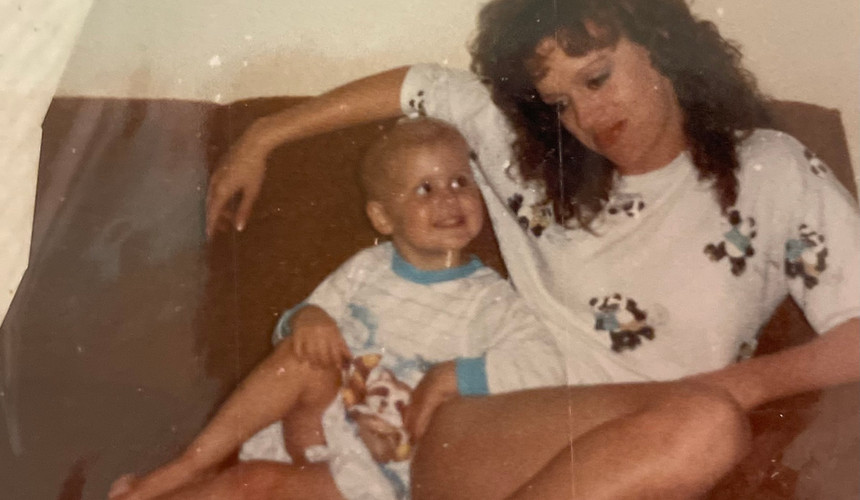Nightmare On Mom Street
- Krystal
- Oct 27, 2025
- 4 min read
(When childhood illness becomes your darkest horror story — and how to fight through and survive)
Imagine taking your 2-year-old in for what looks like a simple infection — and being told there’s a tumor crushing their chest, “probably won’t survive the night.”That was Robbie’s reality.
Back then, she had no Google, no blogs, no insight. Lucky for you, we have tools now. Though I caution you "DO NOT GOOGLE EVERYTHING"...I know it's difficult to avoid. Lucky for you we' have already googled some resources for you. Though there are MANY MORE, these are some great starts (NOTE: The "Local" resources are the Texas Hill Country/Texas area).Consider these lifelines — practical, raw, needed.
And if you haven’t already, go listen to Episode 2: Nightmare On Mom Street to hear Robbie’s whole survival story and be ready for the PLOT TWIST . It will make you laugh, cry, and most importantly, let you know that you ARE NOT ALONE!
1. SUPPORT SYSTEM
You cannot do this alone. Build your army — people who can cook, drive, cry, or curse alongside you. Choose them wisely. You just need a few, strong, reliable people. For those that don't have any support, or need a little extra help, here are a few:
Local:
Light Work 316 — nonprofit helping families facing major illness or injury with financial relief, meal trains, events, and grief support.
Local churches, moms’ groups, and community organizations
National:
Ronald McDonald House Charities — housing near hospitals during treatment
Family Reach — helps with housing, utilities, and transportation
2. COPING & GRIEF
Grief begins the day of diagnosis. Your life — and your family’s lives — change forever, and it is completely normal to grieve during that time. Robbie described “boxing her grief” and compartmentalizing her feelings so she could be strong for her daughter. That’s a survival mechanism — but eventually, the box needs opening. These resources help you cope with trauma, process grief, and safely unbox the hardest emotions.
Local & National Resources:
Light Work 316 — provides grief support, counseling connections, and community programs for families
Hope Hospice – Community Grief Services — counseling for children, teens, and families coping with serious illness or loss
CancerCare Counseling Services — free oncology-specific counseling
BetterHelp — flexible online therapy
Bo’s Place (Houston, TX) — free grief support for children and families
Wonders & Worries — supports children coping when a parent or sibling has a serious illness
Pro Tip: Ask your oncology team or hospital social worker for trusted counseling, peer groups, and grief programs in your area.
3. MAKING MEMORIES
Even in the middle of treatment — REMEMBER TO LIVE!!!!. Find the moments that make you laugh, even if they’re dark. Robbie’s daughter got her wish to go to Disney World through Make-A-Wish.
National:
Make-A-Wish Foundation — grants wishes for children with life-threatening illnesses
Dream Factory — wish-granting for children with chronic or critical conditions
Pro Tip: Don’t wait for “after treatment.” Celebrate the in-between — pizza picnics, scary-movie marathons, dance parties, plan days to create random joy.
4. ADVOCATING FOR YOUR CHILD
You are your child’s voice, and it’s important to feel completely comfortable with their healthcare team — doctors, nurses, surgeons, and specialists. You are allowed and encouraged to ask questions about every aspect of their care, seek second opinions if you feel uncertain, and request clarification in terms you truly understand. Advocacy also means knowing what to expect from treatments, understanding potential side effects, and asking for guidance on how to manage them. Think of it as a “fact-finding mission”, as my girl BECCA always says: write down your questions, research answers, and don’t be afraid to challenge or clarify anything that feels unclear. Your child’s care is a partnership — your comfort and understanding are essential.
Important Questions to Ask:
What are the potential side effects of treatment?
How will treatment affect daily life and activities?
Are there medications or interventions to manage side effects?
How will we know if something isn’t a normal side effect?
Are there any long-term risks associated with this treatment plan, such as secondary cancers?
What does the treatment schedule look like?
Who are the key members of the healthcare team?
When should we seek emergency care?
What resources are available for emotional and mental health support?
Can we get a second opinion if we feel unsure about the plan?
Resource:
5. SUPPORT GROUPS
Some groups heal you. Others drain you. Choose one that FITS YOU!.
Ask your hospital or oncology social worker for peer and family group options.
National:
Stupid Cancer — community for young adults and caregivers
American Childhood Cancer Organization (ACCO) — national parent and survivor network
6. FINANCIAL HELP (WHEN THE BILLS TURN INTO MONSTERS)
Treatment isn’t just exhausting — it’s expensive. These resources can help fight the financial monsters. Every little bit counts so do not get discouraged if the grant isn't HUGE. It can cover a bill, a treatment, a med.
Local:
Light Work 316 — offers direct support and community fundraisers for families in medical crisis
Area churches and civic groups often provide one-time emergency aid
National:
St. Jude Children’s Research Hospital — covers the full cost of treatment, travel, housing, and food for pediatric cancer patients
Leukemia & Lymphoma Society (LLS) — co-pay, travel, and urgent-need grants
National Children’s Cancer Society (NCCS) — travel and lodging support
Pinky Swear Foundation — emergency financial aid for families
Pro Tip: Ask your hospital’s social worker for a “financial resource packet.” Many have access to grants that aren’t listed online.
FINAL SCENE
You didn’t choose this story. You didn’t write this plot twist. But you’re still standing — and that’s the definition of horror-movie strength.
If you haven’t yet, listen to Episode 2: Nightmare On Mom Street (drops Tuesday, Oct. 28th) for Robbie’s raw, real story.
“To survive this horror movie turned reality, arm yourself with your greatest weapon... KNOWLEDGE.”













Comments